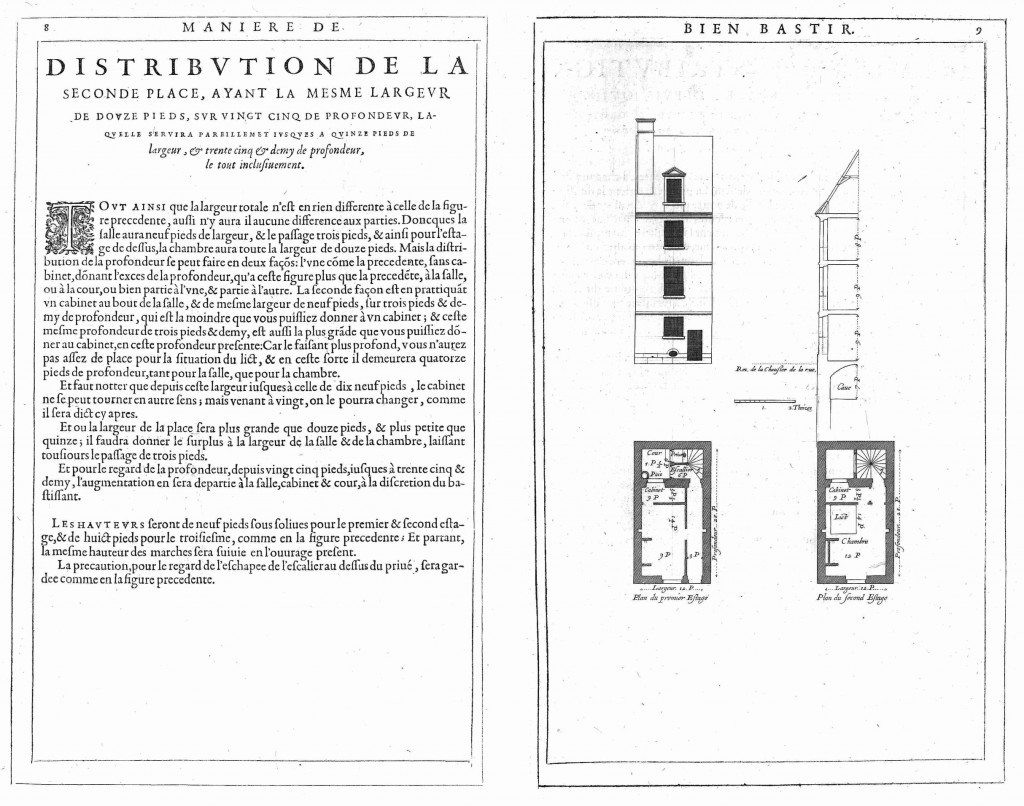Seminar in Diploma 14′s Unit Space, Tuesday, November 26, at 4 pm. Architecture d’accompagnement, or formulaic architecture, developed in Paris between the 1600s and the 1800s – a period marked by the emergence of modern government models. Accompagnement is a simplified classicism, devoid of figurative details and reduced to its most abstract form: an architecture that, for the first time, is concerned with the framing of empty (public) space rather than with the embellishment of built space. With its deliberate blankness, accompagnement shifts the focus of architecture from the objects to the milieu.
Until the reign of Henri IV, there was no specific architectural discourse on the quality of private housing and especially of its impact on the urban scale. At the same time, no formalized public space existed as such, as the very idea of a public sphere did not make sense until a secularized concept of state, based on a social contract, emerged.
Through an analysis of the prototypes of accompagnement – the place royale and the avenue – the seminar will argue that modern public space is essentially an invention of the age of government, the result of a conscious political and architectural choice. By comparing the development of these urban interventions with a rereading of key political theories of sovereignty from Bodin to Hobbes and Rousseau we will trace a genealogy of early European public space as social and cultural product seen as the negative of the space of reproduction. At the same time, accompagnement can also be seen as a first attempt at the standardization of living conditions starting from the design of the facade rather than from the organization of plans that are still largely non-typological. This condition that will find its golden age in the explosion of mass housing during the Third Empire, when Haussmann will consciously decide to design for the uprooted ‘nomads’ of the industrial city through an application of accompagnement on the scale of the metropolis itself.
Architecture d’accompagnement: housing versus public space in the age of government.
Posted by Diploma14 in news, schedule, seminars on November 24, 2013 2:36 pm / 43 comments
-

End-of-term Jury
17 Dec, 2013
-

Architecture d’accompagnement: housing versus public space in the age of government.
24 Nov, 2013
-

Domestic Architecture and the Emergence Architecture as a profession in the 16th century.
26 Oct, 2013
-

The Facade: From Wall to Project
20 Oct, 2013
-

Dip14 book on Sacred Space out in Spring 2014
27 Sep, 2013
-

End-of-term Jury
17 Dec, 2013
-

Architecture d’accompagnement: housing versus public space in the age of government.
24 Nov, 2013
-

Domestic Architecture and the Emergence Architecture as a profession in the 16th century.
26 Oct, 2013
-

The Facade: From Wall to Project
20 Oct, 2013
-

Dip14 book on Sacred Space out in Spring 2014
27 Sep, 2013
- No comments


No comments
Be the first one to leave a comment.